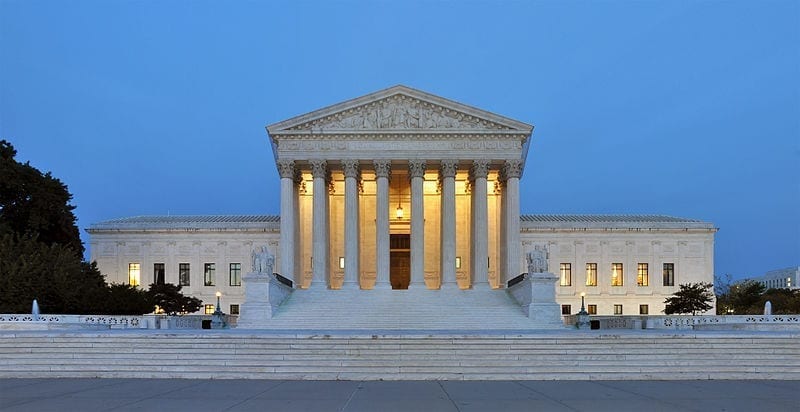While the Supreme Court may have lowered the standard to raise a malicious prosecution case, the split ruling does not make it any easier to sue law enforcement and other public officials.
The U.S. Supreme Court has made it easier for Americans to sue police and prosecutors for malicious prosecution.
However, the decision does not overturn existing rules that makes it difficult to file such complaints in the first place.
According to The New York Times, the justices’ split 6-3 decision only addresses whether plaintiff Larry Thompson demonstrated whether there was a favorable termination of prosecution against him.
National Public Radio notes that the case—oddly enough—relates to literal diaper rash.
When Thompson was living with his then-fiancée and newborn baby, his sister-in-law—who allegedly suffered from mental illness—called 9-1-1 on the family, claiming that Thompson was abusing his child.
When emergency responders arrived to Thompson’s home, they were permitted entry by his sister-in-law.
However, Thompson—who was not aware of the 9-1-1 call—told EMTs they had the wrong address.
The EMTs left, but returned shortly afterward with four New York City police officers.

Thompson, says N.P.R., told them they could not enter without a search warrant. However, an officer allegedly threw Thompson to the ground and handcuffed him while other law enforcement personnel examined the baby.
While the officers’ search yielded nothing other than diaper rash, Thompson was taken to jail, charged with resisting arrest and obstructing governmental administration, and left behind bars for several days.
Prosecutors eventually offered Thompson a deal, saying they would clear his record if he admitted to the charges.
However, Thompson refused—and the prosecutors eventually dropped the case without explanation.
Despite prosecutors’ decision, Thompson decided to file a lawsuit, alleging malicious prosecution. In his complaint, Thompson cited an 1871 federal civil rights law known as Section 1983.
Section 1983, notes the New York Times, allows private citizens to sue state officials, including police officers, over suspected violations of their constitutional rights.
Thompson, for his part, said that the N.Y.P.D. officers violated his Fourth Amendment rights by executing a search of his residence without first obtaining a warrant or reasonable cause.
But a federal appeals court found that Thompson had to first prove, or “affirm,” his innocence before filing a civil complaint.
The prosecution’s decision to drop charges, said the court, was not sufficient grounds for Thompson to file a lawsuit.
However, Justice Brett Kavanaugh, writing for the majority, said that the plaintiff only needed to show that his prosecution ended without a conviction, rather than a definite finding of innocence.
“Requiring the plaintiff to show that his prosecution ended with an affirmative indication of innocence would paradoxically foreclose [his Section 1983 claim],” Kavanaugh wrote, “when the government’s case was weaker and dismissed without explanation before trial, but allow a claim when the government’s evidence was substantial enough to proceed to trial.”
However, dissenting Justice Samuel A. Alito, Jr., contended that the majority failed to demonstrate that federal law even allows malicious prosecution claims—let alone Thompson’s.
Kavanaugh, wrote Alito, tried to combine “elements taken from two very different claims: a Fourth Amendment unreasonable seizure claim and a common-law malicious-prosecution claim.”
“In fact,” Alito wrote, “the Fourth Amendment and malicious prosecution have almost nothing in common.”
Sources
Supreme Court makes it easier to sue the police for malicious prosecution
Supreme Court Rules Against Police in Malicious Prosecution Case


Join the conversation!